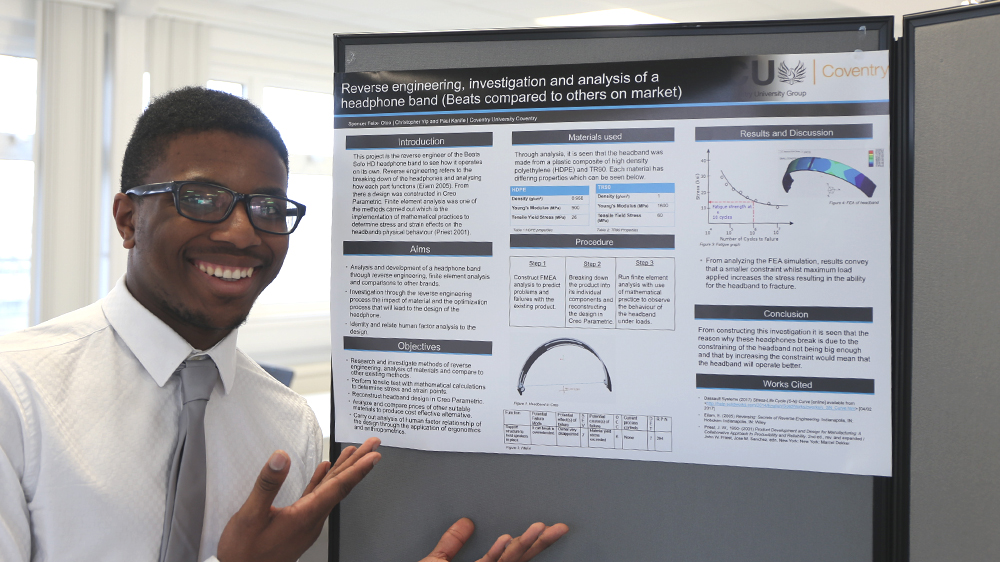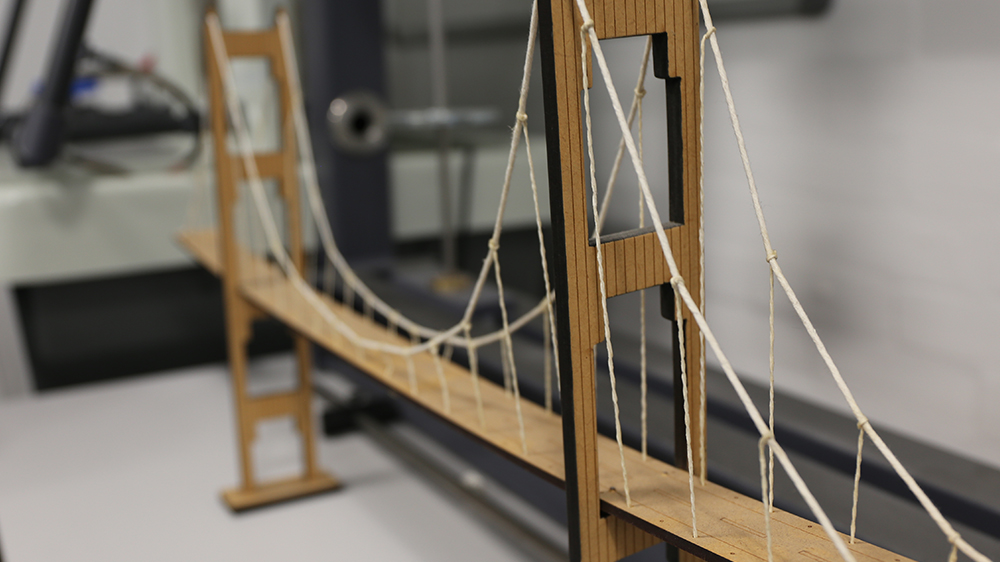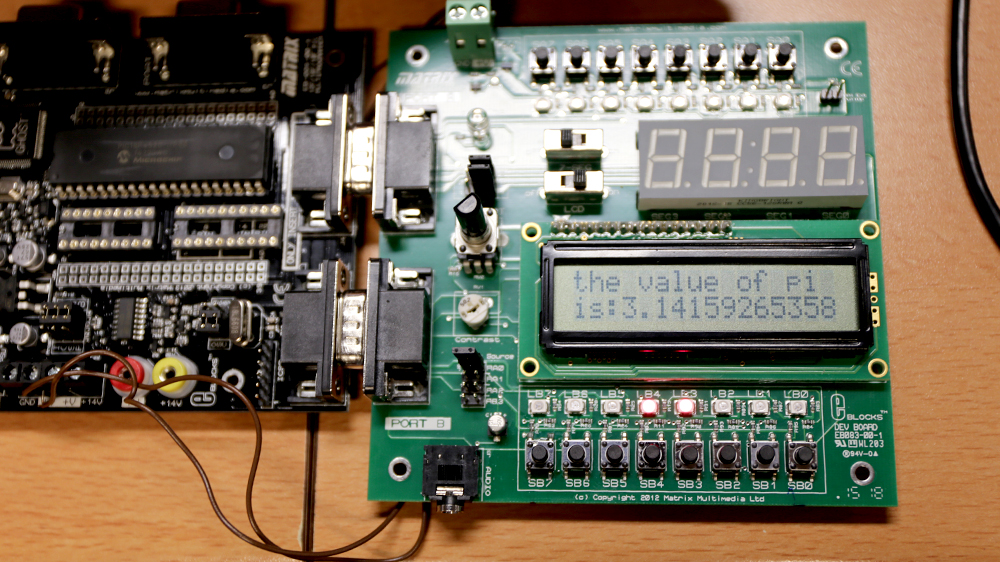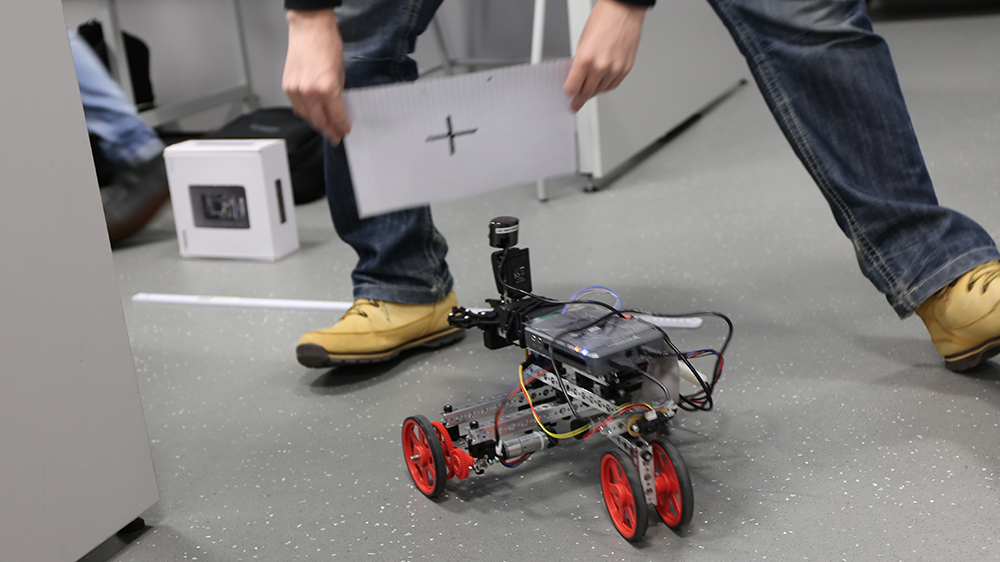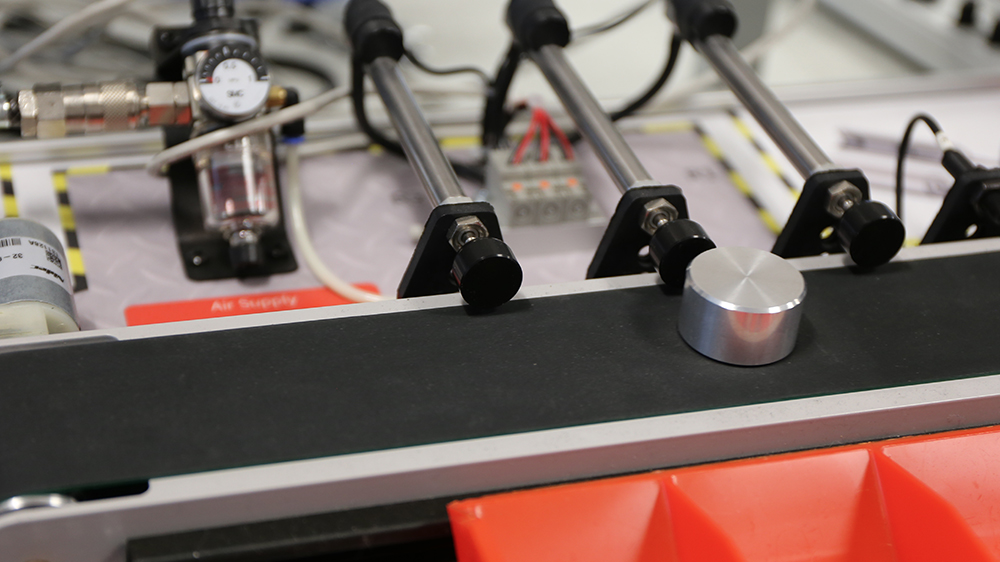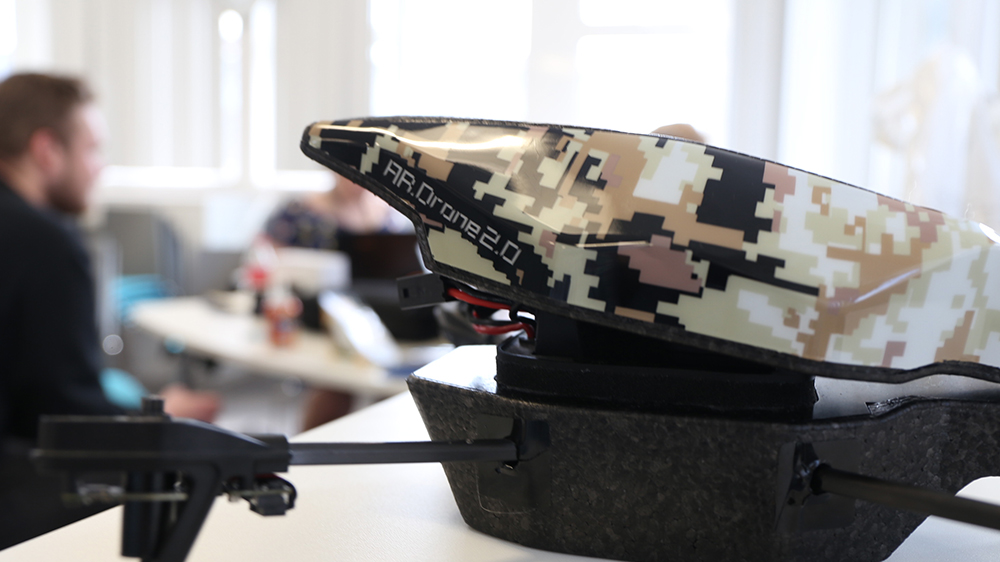Search
Electro-Mechanical Engineering BEng (Hons) with foundation year
Study level: UndergraduateHNC/HND courses
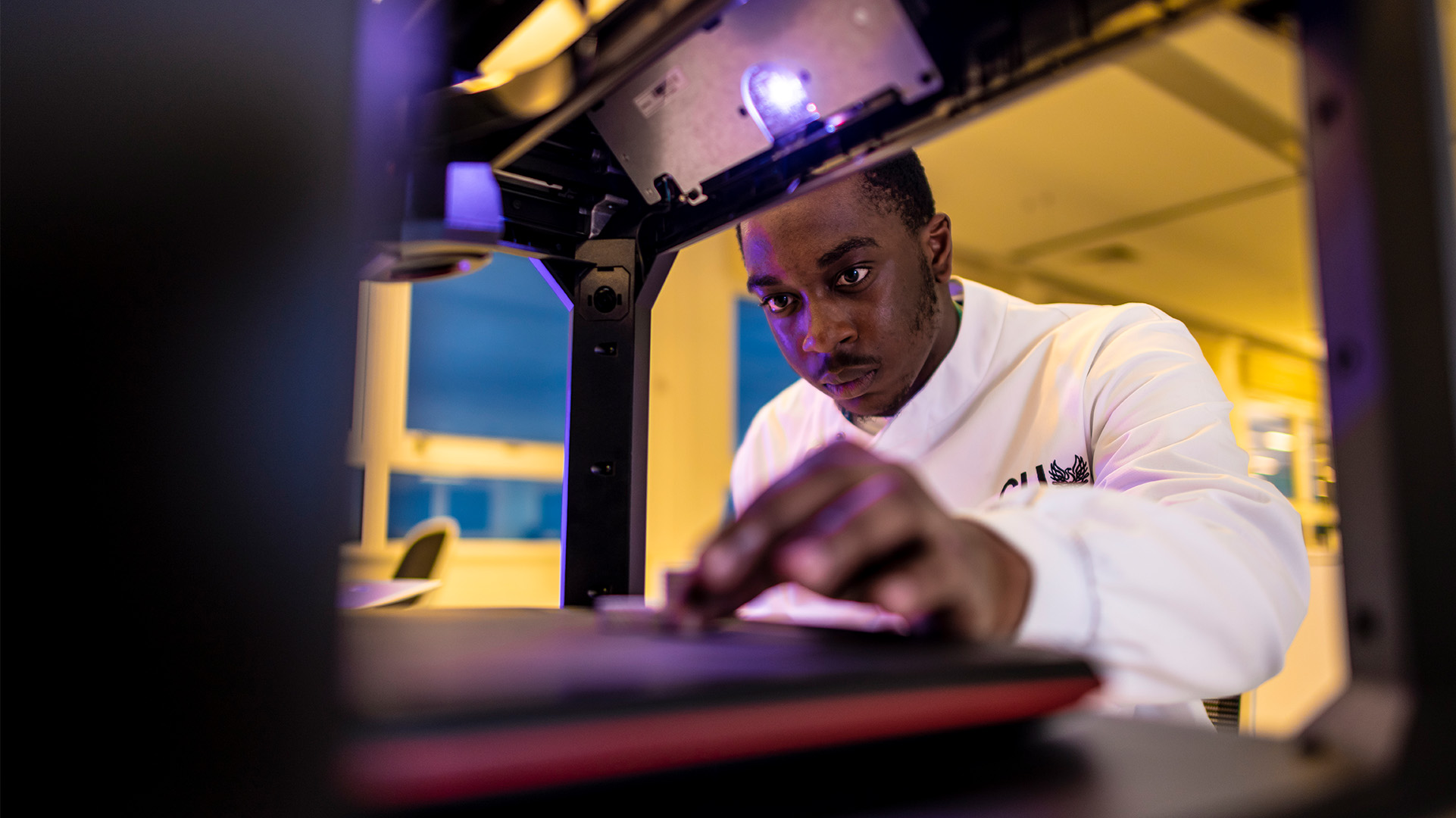
The Electro-Mechanical Engineering with foundation year BEng (Hons) course aims to provide you with a solid grounding for building a career in the engineering sector.
Course features
Course option
Year of entry
Location
CU London (Dagenham, London)
Study mode
Full-time
Sandwich
Duration
4 years full-time
5 years sandwich
UCAS codes
HH38
Start date
January 2026
March 2026
May 2026
June 2026
Course overview
Foundation year
Studying to be an engineer and gaining the right skills and the right qualifications, could see you enjoy frequent travel, passion projects and a fulfilling career.
A strength of this course is the chance to prepare for a career in electro-mechanical engineering, without following a more traditional route to a degree.
Degree
Engineering is a combination of science and technology that is concerned with solving complex problems, such as machinery, infrastructure and design. Practitioners of this discipline can be capable of working on significant global issues such as the effects of climate change or improving city infrastructure.
Engineering empowers you to combine creativity with precision on a daily basis. The Electro-Mechanical BEng (Hons) degree can offer you broad and diverse career options, including transport, power, vehicle, systems, design, manufacturing, mechatronics, renewable and mechanical engineering.
Alongside possible international opportunities2, you may get the chance to conduct critical research with our experienced staff, learn from skilled guest visitors and take part in an invaluable placement year2.
Why you should study this course
Your first year on the Electro-Mechanical Engineering with foundation year BEng (Hons) course provides you with opportunities to develop fundamental knowledge and skills in a range of mathematical and engineering principles, as well as the theories and concepts of electrical and mechanical engineering.
When you successfully complete your foundation year, you can then progress onto the Electro-Mechanical Engineering BEng (Hons), which could offer you broad and diverse career options, including transport, power, vehicle, systems, design, manufacturing, mechatronics, renewable and mechanical engineering.
Engineering is an exciting subject that could see you enjoy frequent travel, passion projects and a fulfilling career. Alongside possible international opportunities2 you may get the chance to conduct critical research with our experienced staff, learn from skilled guest visitors and take part in an invaluable placement year2.
What you'll study
The course focuses on the demands of the modern engineering workplace encompassing the main engineering disciplines. This will reflect contemporary practices, with an emphasis on practical skills and student employability. High levels of support are a cornerstone of the programme, and you will work on diverse realistic projects throughout your final year.
With the pace of technological development, engineering should be considered as applied problem-solving. Integrating the different technologies at the heart of modern engineering, this course aims to provide a grounding in a variety of different engineering disciplines before developing skills in accessing information, converting it into knowledge and applying and evaluating it.
Successful graduates should not only gain the knowledge required for a successful career in engineering but also, the highly sought-after skills to be self-managing, self-developing individuals.
Your first year on the Electro-Mechanical Engineering with foundation year BEng (Hons) course provides you with opportunities to develop fundamental knowledge and skills in a range of mathematical and engineering principles, as well as the theories and concepts of electrical and mechanical engineering.
When you successfully complete your foundation year, you can then progress onto the Electro-Mechanical Engineering BEng (Hons), which could offer you broad and diverse career options, including transport, power, vehicle, systems, design, manufacturing, mechatronics, renewable and mechanical engineering.
We regularly review our course content, to make it relevant and current for the benefit of our students. For these reasons, course modules may be updated.
How you'll learn
Our teaching methods are varied, offering a number of teaching styles, so in addition to lectures, we also utilise a blended learning approach, including online tutorial support, workshops and group work. We also operate an open-door policy, with additional availability via email and our current online learning platform, Aula.
Entry requirements
Typical entry requirements:
Fees and funding
Foundation year
| Student | Full-time | Part-time |
|---|---|---|
| UK, Ireland*, Channel Islands or Isle of Man | £9,535 | Not available |
| International/EU | Not currently available*** | Not available |
Degree
| Student | Full-time | Part-time |
|---|---|---|
| UK, Ireland*, Channel Islands or Isle of Man | £9,535 per year | Not available |
| International/EU | Not currently available*** | Not available |
If you choose to study this course with a professional placement2 or study abroad year, you will need to pay a tuition fee3 to cover your academic support throughout your placement year. Students commencing their professional placement in the academic year 2027/28 will pay £1,500 if they are paying UK fees, or £1,800 if they are paying international fees.
For advice and guidance on tuition fees and student loans visit our Undergraduate Finance page and see the university’s Tuition Fee and Refund Terms and Conditions.
The University will charge the tuition fees that are stated in the above table for the first Academic Year of study. The University will review tuition fees each year. For UK (home) students, if Parliament permits an increase in tuition fees, the university may increase fees for each subsequent year of study in line with any such changes. Note that any increase is expected to be in line with inflation.
If you choose to study this course with a professional placement, the University will charge the tuition fees stated above for those on a placement during Academic Year 2027/28. The University will review professional placement tuition fees each year. For UK (home) students, the University may increase fees for each subsequent year of study, but such that it will be no more than 5% above inflation.
For international students, we may increase fees each year, but such increases will be no more than 5% above inflation. If you defer your course start date or have to extend your studies beyond the normal duration of the course (e.g. to repeat a year or resit examinations) the University reserves the right to charge you fees at a higher rate and/or in accordance with any legislative changes during the additional period of study.
We offer a range of International scholarships to students all over the world. For more information, visit our International Scholarships page.
Tuition fees cover the cost of your teaching, assessments, facilities and support services. There may be additional costs not covered by this fee such as accommodation and living costs, recommended reading books, stationery, printing and re-assessments should you need them. Find out what's included in your tuition costs.
Applies to degree only:
The following are additional costs not included in the tuition fees:
- Any optional overseas field trips or visits: £400+ per trip.
- Any costs associated with securing, attending or completing a placement (whether in the UK or abroad).
Foundation year funding
In order to receive funding for degree with foundation year courses, you will need to complete a four-year degree programme which includes the integrated foundation year, otherwise you may be responsible for your foundation year fees. For further information, please refer to the 'Tuition Fee Loan' details in the 'Funding your undergraduate course' section of our 'Fees and finance' page.
*Irish student fees
The rights of Irish residents to study in the UK are preserved under the Common Travel Area arrangement. If you are an Irish student and meet the residency criteria, you can study in England, pay the same level of tuition fees as English students and utilise the Tuition Fee Loan.
**This course with foundation year is not currently available to international students. If you do not meet the entry requirements to directly join year 1 of the degree, please take a look at our International Pathway courses for additional options.
Facilities
CU London Dagenham campus is in the Civic Centre building and is easily accessible by road, bus and rail. Facilities include:
- engineering labs equipped with tools, instruments, and equipment that support research, experimentation, and practical learning. These labs are essential for all students undertaking an engineering-related course as they provide hands-on experience and conduct experiments
- classrooms with interactive teaching capabilities
- comprehensive library and learning services
- study areas, laptops/open-access computers and social spaces
- student support and careers advice teams.
Facilities are subject to availability. Access to some facilities (including some teaching and learning spaces) may vary from those advertised and/or may have reduced availability or restrictions where the university is following public authority guidance, decisions or orders.
Careers and opportunities
Upon successful completion, you should be able to:
- critically appraise an engineering scenario with a view to applying innovative technologies to improve efficiency or effectiveness
- explain engineering principles, solve simple, practical problems in an engineering context, show practical skills in a laboratory/workshop environment and have the educational preparation for a career as an engineering technician
- use an enquiring, critical and reflective approach to engineering studies
- develop practical skills to solve complex workshop-based problems
- appraise an engineering problem and debate alternative, sustainable solutions
- gain practical and transferable skills to enhance your long-term employability or to progress to specialist, postgraduate study.
Successfully completing the BEng means your chances of employment are improved and the level at which you enter the jobs market could mean a higher salary. With a demand for engineering professionals in all industries, you could have an expansive list of career paths to explore.
Successful graduates will be knowledgeable across a range of engineering disciplines and could go on to work in a vast range of engineering sectors such as software, nuclear, textile or civil engineering.
Where our graduates work
Previous graduates have progressed to become Engineering Technicians, Project Managers and Trainee Engineering Lecturers.
Further study
Many of our graduates have progressed to postgraduate study and are working towards a master’s qualification in fields such as petroleum engineering, civil engineering, mechanical engineering, automotive engineering and electrical and electronic engineering.
How to apply
This course with foundation year is not available to international students.
